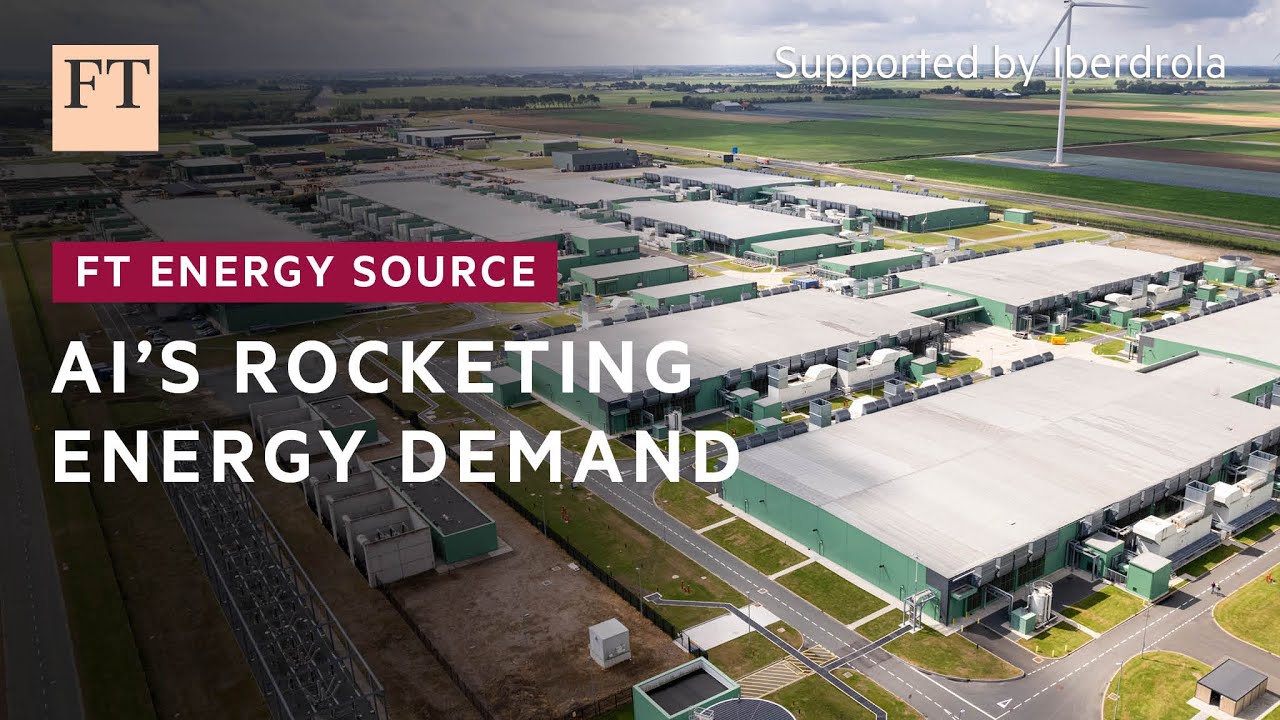The video highlights the escalating energy demands of artificial intelligence and data centers, with predictions that global power demand could double by 2026, raising concerns about sustainability and the adequacy of renewable energy sources. In response, companies like Microsoft and Amazon are exploring alternative energy solutions, including nuclear power and onsite generation, to meet these demands while adhering to net-zero carbon commitments.
The video discusses the increasing energy demands of artificial intelligence (AI) and its potential implications for the industry and green energy targets. The International Energy Agency predicts that global power demand from data centers, AI, and cryptocurrencies could double by 2026 compared to 2022 levels. Major tech companies like Microsoft are rapidly expanding their data center operations, with Microsoft opening a new center every three days. This surge in computational power needed for machine learning models has been doubling every five to six months since 2010, raising concerns about the sustainability of energy supply.
Elon Musk highlighted that electricity supply is currently a bottleneck for advancing AI technology, while Amazon’s CEO Andy Jassy noted that there isn’t enough energy available to support new generative AI services. Many data center customers have committed to net-zero carbon dioxide emissions, but the reliance on renewable energy sources may not meet the increasing demand for reliable power. This situation has led to a renewed interest in natural gas as a potential solution, as it can provide the necessary reliable energy quickly.
In response to the energy challenges, data center developers are exploring alternative power generation options, including onsite power generation and nuclear energy. Microsoft has taken a significant step by hiring its first director of nuclear technologies, indicating a shift towards considering nuclear power as a viable energy source. Although traditional nuclear energy has faced safety concerns and cost overruns, new technologies such as small modular reactors (SMRs) and micro reactors are being developed to address these issues.
These next-generation nuclear technologies promise to be produced quickly, cheaply, and at scale, with the added benefit of not emitting CO2. However, the commercialization of SMRs is not expected until the end of the decade, prompting the industry to seek immediate solutions. For instance, Amazon’s AWS has invested in a data center connected to an existing nuclear plant, demonstrating a practical approach to meeting energy demands while adhering to sustainability commitments.
Experts believe that data centers could serve as a catalyst for the growth of SMRs, as large tech companies possess the capital necessary to invest in the initial developments required to bring these reactors to market. This intersection of AI growth and energy supply challenges highlights the need for innovative solutions to ensure that the tech industry can continue to expand without compromising environmental goals.
AI’s energy use is set to rocket. That could not only constrain the industry’s growth, but also threaten green energy targets. Renewable sources of energy may not be able to cope with the load and reliability of supply needed, so data centre developers are considering options such as onsite power generation and nuclear energy.
#ai #electricity #datacenters
See if you get the FT for free as a student (http://ft.com/schoolsarefree) or start a £1 trial: Financial Times.
► Check out our Community tab for more stories: https://www.youtube.com/@FinancialTimes/community
► Listen to our podcasts: FT Podcasts
► Follow us on Instagram: https://www.instagram.com/financialtimes
